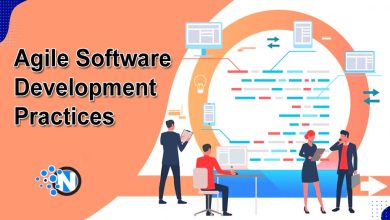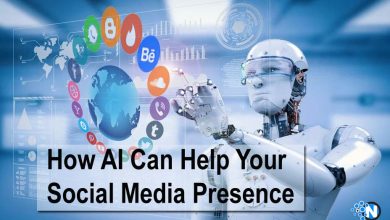How Technology is Changing the Manufacturing Process
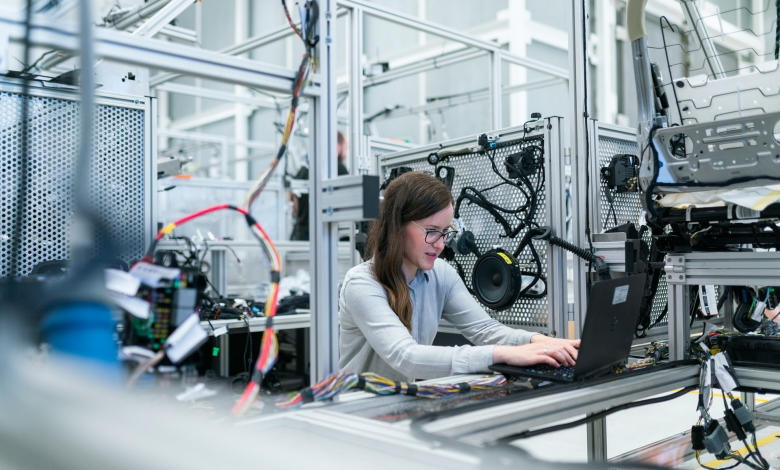
New technologies have been pushing industries forward for the past few centuries. The first industrial revolution introduced steam engines that improved manufacturing across all industries. The third industrial revolution focused on using computers to streamline production even further, and the world is currently entering the 4th, digital revolution.
Industry 4.0 is here, and it relies on advanced technologies such as AI, ML, robotics, and IoT, that work together to bring manufacturing to a never-before-seen level. Let’s see how these technologies are changing manufacturing processes in more detail.
Technologies Behind Industry 4.0
The 4th industrial revolution is possible only because of the incredible advances in computing power, artificial intelligence, machine learning, and the use of tiny data-generating sensors. It’s a revolution that puts an end to traditional business and manufacturing processes and uses a digital environment to elevate operations to a new level.
Moreover, new technologies have opened up worldwide markets to otherwise local businesses. The internet offers a worldwide market, and if you have a unique product, there’s no reason you couldn’t compete with much bigger companies.
Introducing automation and advanced machinery into your manufacturing processes increases output while cutting down manufacturing and maintenance costs. When paired with other advanced technologies such as digital twin, robotics, cloud-based CRMs, etc, small businesses have the chance to scale their operations faster than ever before.
New Manufacturing Trends Shaping The Future of Industries
All of these new technologies are opening up business opportunities in a digital environment. AI and ML have already reached the point where they have a direct impact on manufacturing processes. Traditional technologies have reached their peak, and these new technological advancements focus on complete digitalization. Manufacturing and product design practices are changing before our eyes, leading to new trends and techniques that offer better results at a lower cost. Here are some of the methods paving the way for Industry 4.0.
Automated Packaging
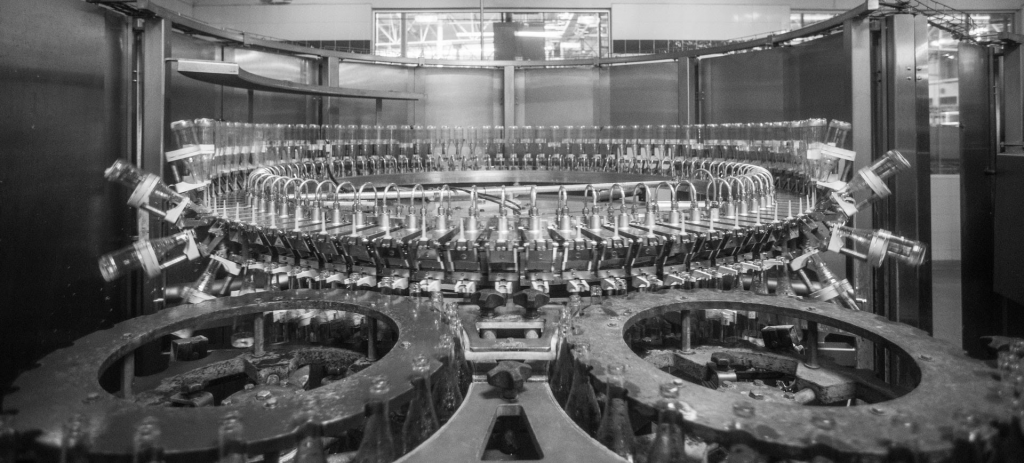
Packaging often creates all kinds of logistics problems, especially for growing companies. A sudden influx of orders can lead to a standstill in the packaging department due to the lack of employees. However, automated packaging can save countless working hours and ensure that all orders are met on time.
Packaging robots controlled by AI are able to load parts, weigh packages, and prepare them for shipping without any workers involved. Something that used to take 40 hours to package can now be done in just 10. Businesses can save a heap of money through automation by reducing labor costs.
Predictive Maintenance
Predictive maintenance is one of the biggest benefits companies get from using advanced AI and IoT solutions. Traditionally, whenever a manufacturing machine breaks down or stops working correctly, companies halt production until they fix the issue. No matter how good the machines are, they are bound to experience problems sometime in the future.
Well, predictive maintenance is a practice shaping industries today, and this is how it works. Businesses install small sensors on all machines, tools, and assets within the manufacturing plant. These sensors monitor all individual assets in real-time, sending the data to the ML system. The system reads the data and can pinpoint problems that have a negative impact on performance.
After a while, the AI can predict when a machine or asset will break down with incredible accuracy. That way, you’ll know which assets are underperforming and make changes before a catastrophic failure ever happens. McKinsey’s report says that predictive maintenance can reduce downtimes by as much as 50%. This approach is also able to save up to 40% on maintenance costs while improving production and efficiency.
Monitoring Capabilities
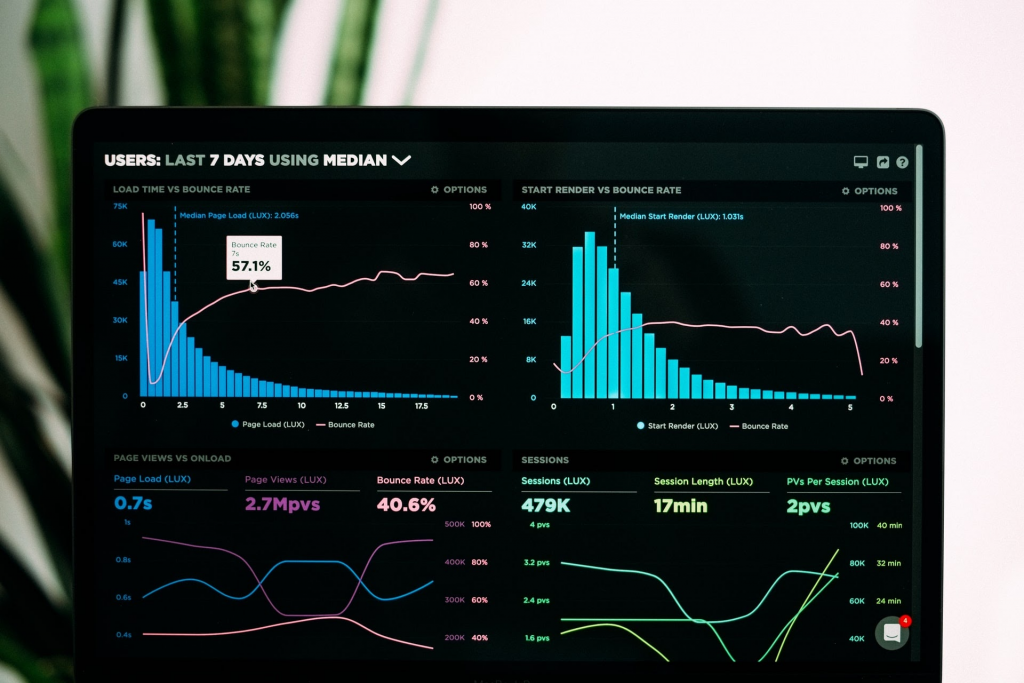
Running a manufacturing plant is no easy task. There are thousands of assets, tools, and employees to oversee to keep everything running smoothly. Of course, that is too much work for a team of managers, which leads to expensive errors at some point.
AI, ML, and IoT can help you with that as well. Once you install a small sensor on every asset and use IoT technology to track them in real-time. You will know what’s going on at all times, and you’ll have an overview of the entire operation, allowing you to spot potential issues on time. The information is then conveyed to the right employee that works to prevent such issues. In reality, that means that you’ll be able to reduce maintenance costs, error rates, and save a lot of money in the process.
Customized Customer Engagement
Believe it or not IoT and AI have a direct effect on improving customer engagement. How? Well, it’s simple. These technologies bridge the gap in communication between customers and manufacturers. For example, an AI can read through customer reviews and find repeating issues in product design. Once you know what your customers think about a product, you can make the necessary changes according to their needs.
Moreover, AI can also help you figure out how your customers use the product, allowing you to prepare a better customer support service. As long as you feed the ML system with accurate information, the AI will learn to cope with complex issues and problems more efficiently.
Digital Twin
The digital twin technology brings something completely new to the manufacturing process. Once the IoT sensors gather enough data over time, an AI can redesign the entire process in a digital environment with 100% accuracy. In other words, you’ll have a lifelike copy of your entire operation in a digital environment you can then bend to your will.
That will give you the perfect, cost-efficient way of running simulations for different scenarios. You can also use the digital twin technology to test product prototypes before you create a real-life model. In term, that will save you a lot of money on product development and other business processes.
Conclusion
Industry 4.0 introduces automation, robotics, and IoT to improve all manufacturing processes. Together, these technologies provide benefits that lead to significant cost reduction, improved business operations, and higher customer satisfaction. Their adaptation is quickly speeding up across all industries, as they are simply a win-win situation for both, the manufacturer and the consumer.
If you’re looking to improve your manufacturing processes and make your business ready for the future, you should invest in these technologies as soon as possible. You will get an edge over the competition, and bring your entire operation to a much higher level.


